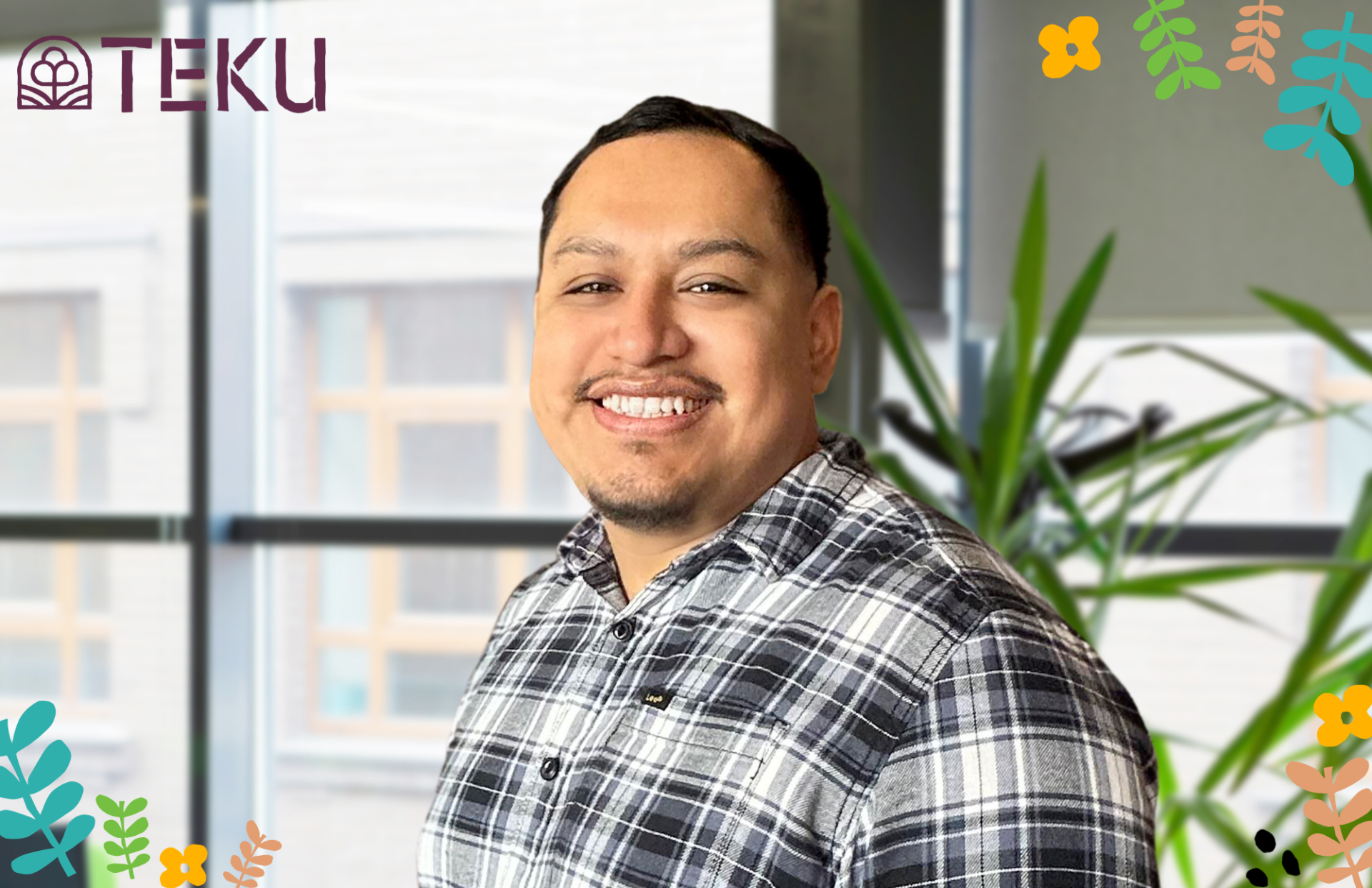At Teku, we value the strength and power of lived experiences. Throughout the past few years since we met Hernán Carvente-Martinez, we have been inspired by his story of healing, resilience and leadership. Hernán is a dedicated community leader committed to fostering sustainable, community-driven progress grounded in culture, community and healing. He is the Executive Director at
Alianza for Opportunity, an organization that aims to drive transformative change by fostering thriving Latine/x, Afro-Latine/x, and Indigenous communities rooted in dignity, healing and opportunity. They work to dismantle systemic oppression and advance racial and economic justice through narrative change, research initiatives and grassroots mobilization.
Hernán recognizes the power of ancestral practices in promoting community health and healing. We are thrilled to partner with Hernán as a Teku Yoga Ambassador, helping us spread the word about our most recent offering,
Chakra Balancing Virtual Series. This collaboration is a manifestation of the power of relationships and how mutual support helps our organizations grow.
Our team spoke to Hernán to learn about his yoga journey and how it shapes his wellness practices. Grab your cup of coffee or tea, or just sit by a warm bright window and join in on the wisdom Hernán shares with us.
My journey with yoga started while sitting in a juvenile prison. Between the ages of 16-20, I served time in a juvenile prison for the crime of attempted murder. During that time, I got my GED. Then, I joined a college program with an initiative called the "Friends of Brookwood," which invited community members to come to offer their gifts and expertise to young people who were part of the program. One of the people who came to visit us through this program was an older white woman and her daughter, who introduced us to both meditation and yoga as ways to manage stress while in the facility and be more present for our college courses. At first, I was very hesitant about both of these practices. I was also surprised that two white women were so willing to teach us these practices and, rather than being afraid of us, were so warm and welcoming of all of us throughout the whole learning experience. At first, I rarely used any of what I learned other than when I was in the college program or when these two women visited us. Over time, after navigating challenging moments in the facility, including being locked in for extended periods, witnessing riots, and other often traumatic moments, I began to incorporate yoga and meditative practices to both keep myself calm and to release tension in my body to avoid getting involved or escalating traumatic moments in my mind. Although I wanted to continue this practice when I returned home, it became hard to do that when the majority of the spaces in which Yoga was being used were not necessarily led by Brown or Black men but primarily white men and women. As a formerly incarcerated young man who had engaged in these practices without really addressing my internalized machismo and other problematic ways of thinking, I thought that yoga would make me look "weak" in the free world, much like while I was in prison. That said, I let go of this practice when I came home from prison and also slowly let go of practices that once supported me because of the perception that these were not practices that "men" traditionally engaged in. However, in 2018, after surviving a suicide attempt and diving deep into therapy following 6 years of intense organizing work while navigating so many life challenges, I came back to Yoga as one of the tools that supported my well-being.
Since 2018, I have had on-and-off experiences with Yoga. Although I initially used the practice to support recovery at the gym, at different points mostly, it became an outlet for tension in the body, processing emotions, and connecting to the practice of mindfulness (especially after intense therapy sessions that I attended every week for 4.5 years). As I processed my own internalized trauma and some of the toxic narratives around masculinity, I slowly began to practice yoga more visibly and to help my physical, mental, and spiritual energy find more balance. Over time, I started to try to incorporate these practices more consistently and, more recently, have begun to bring them back into my life to support my workout routines and also to center myself every morning (or sometimes evening) for often very stressful days. I have seen the value of yoga in my life at different points. I have sometimes dropped the practice of Yoga because of a lack of structure or commitment to maintaining the practice because of leaning on other more challenging vices, like partying, drinking, or other self-destructive activities. However, the beauty of Yoga is that much like riding a bike, the poses, practice, and teaching never leave your mind and can easily be picked up as a habit at any point. Every time I have picked it back up, it has been a supportive practice for my overall emotional well-being.
I plan to find more intentional ways to incorporate Yoga and other wellness practices into my projects and work through my nonprofit, Alianza for Opportunity. In the nonprofit sector, we often work with communities that have frequently navigated various oppressive systems and experienced high levels of trauma. It is not common practice for organizations to incorporate wellness practices in the work they do for their staff and the people they are looking to impact. I want to change that. I want to share different practices with members of our community and reinforce the idea that Yoga and other wellness practices should be one of many that are offered to people in our communities. Healing for our communities should not be a one-size-fits-all approach, and Yoga should be offered to those who could benefit greatly from this practice. I want to teach young emerging leaders how to use this practice effectively as part of their leadership work to ensure that they are invested not just with the practical skills to do the organizing work they do but also have the tools to sustain their energy.
Yoga, like any other practice, requires commitment and discipline.
- First, read more about Yoga, its benefits, and how it might fit some of your personal goals. Then try a free class somewhere. After that, you need to decide whether this is something you want to do. (No use wasting resources on something you don't want to commit to)
- Two, after you've decided if you are down for the cause, you need to determine what your commitment will look like. Do you think this is an everyday practice? A weekly one? It is better to commit to tangible goals than to something unsustainable, like 1 hour each day, which for the average busy person may become more complex and more challenging to sustain over time given life and other commitments (for example, I commit to a minimum of 15-30 mins a day to make sure I give myself a baseline and something that I can aspire to on a good day.
- Third, determine if you want to practice yoga alone or with a community. The TEKU courses are an example of something you can do independently with guided instruction. Still, you may also want to join a Yoga group or participate in another supportive community. So, you should do what feels best for you and go from there.
- Fourth, and perhaps the most important, make yoga fun for yourself. It won't get you anywhere if it feels like a chore or task on your to-do list. The goal is for the practice to meet your needs and feel like it's a part of your routine in a manageable and fun way.
Yoga is an individual journey. It's about accepting what your body is feeling throughout that journey. You may feel discomfort and like you are the least flexible person at the start of the journey. Over time, you become more comfortable, your body becomes more flexible, and you may begin to dive deeper into elements of your journey that you never thought possible. Be open-minded. Leave judgment and criticism out of the process. Just let the body flow!
Hernán is a Teku Course Ambassador for our Deep and Balanced Living: Virtual Chakra Balancing Yoga Series. Register today and use promo code “AlianzaYoga” to receive 10% off the course.


